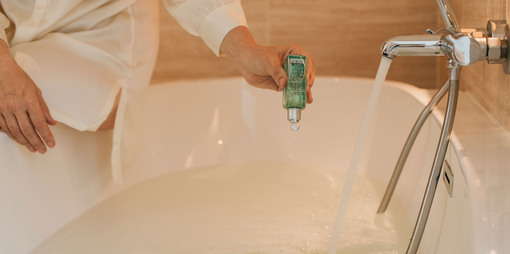How are you?

How are you?
“How are you?”
“I’m well, thanks.”
What do we really mean when we say the word, “well”?
Are we saying ‘well’ as a sense of relief that we are still standing upright, not terminally or mentally ill, able to turn up and go to work, able to get out of bed in the morning?
And of course to some extent that would be true as we would definitely be un-well if we were unable to do any of the above.
But would we answer ‘well’ to the question “how are you” if we had aches and pains every day? If we felt anxious or exhausted most of the time? If daily life felt like a struggle or a drudgery?
Yes, most of us would probably answer “well” because even though we may sense that our lives are not perhaps the way we would want them to be, or perhaps that we know they could be, we can still get out of bed and perform all of our daily duties.
So is the current widely recognised definition of wellness really describing a life full of vitality and joy, or does it just mean better than extremely poor and ill health? That is, we are well because we are not ill in bed or in hospital!
It seems this definition of ‘well’ is based on what we are able to physically do in a day and not necessarily on the quality we are living in when we are doing it.
We have defined ‘well’ as our ability to perform our ‘activities of daily living’, rather than our ‘quality of daily living’.
-
Does anyone mind or notice that their GP might look stressed or tired?
-
Does anyone mind or notice that the children’s teachers appear anxious and ex-hausted?
-
Does anyone mind or notice that the kids are hyperactive or obese?
Do we pay attention to the level of uneasiness, despondency and discomfort in our own bodies and minds, or do we just cover it up with sugar, medication, distractions of work and hobbies?
Or do we just consider these things as ‘normal life’?
It seems we have defined “well” as a state of being that in comparison to the extremes of unwell looks good, but is it really well? Have we not just accepted a certain level of health and vitality that is far from our true natural way of being?
The problem with accepting a lesser way of being as being normal or well is that illness and disease continues to rise despite modern medicine being the most advanced it has ever been. Yes, it is incredibly supportive and wonderful what can be done these days when we get ill, but perhaps it all starts with our ignoring or over-riding those first subtle signs of dis-ease?
Perhaps we are in fact not well the very moment we first feel the tension of not being ourselves or not connected to our bodies?
Sometimes I have heard people reply to the question, “How are you?” with the answer “Not too bad”, and in a way this perhaps is the more accurate answer, as what we deem as being “well” is in fact not great, just not so bad or inconvenient that we have to really pay attention.
So the next time someone asks “How are you?”, perhaps stop and consider the answer and how we really feel in our bodies every day.
Filed under
Health, Health conditions, Human body, Ill health, Sickness, Well-being



 PRINT PAGE
PRINT PAGE


